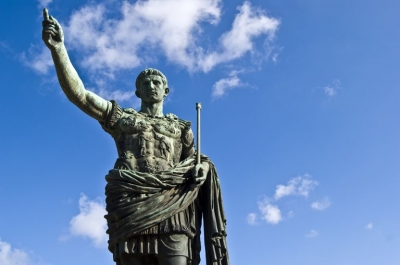
Julius Caesar (102-44BC) was a Roman statesman and a general who conquered Gaul (now France and Belgium), and invaded Britain in 55BC.
He became the sole ruler and dictator of the Roman Empire, but was never the emperor.
He was stabbed to death in the Senate House by enemies who believed that he had too much power.
Caesar changed the course of the history of the Greco-Roman world decisively and irreversibly. The Greco-Roman society has been extinct for so long that most of the names of its great men mean little to the average, educated modern person. But Caesar’s name, like Alexander’s, is still on people’s lips throughout the Christian and Islamic worlds. Even people who know nothing of Caesar as a historic personality are familiar with his family name as a title signifying a ruler who is in some sense uniquely supreme or paramount—the meaning of Kaiser in German, tsar in the Slavonic languages, and qaysar in the languages of the Islamic world.
Caesar’s gens (clan) name, Julius (Iulius), is also familiar in the Christian world, for in Caesar’s lifetime the Roman month Quintilis, in which he was born, was renamed “July” in his honour. This name has survived, as has Caesar’s reform of the calendar. The old Roman calendar was inaccurate and manipulated for political purposes. Caesar’s calendar, the Julian calendar, is still partially in force in the Eastern Orthodox Christian countries, and the Gregorian calendar, now in use in the West, is the Julian, slightly corrected by Pope Gregory XIII.
Credit : Britannica
Picture Credit : Google



